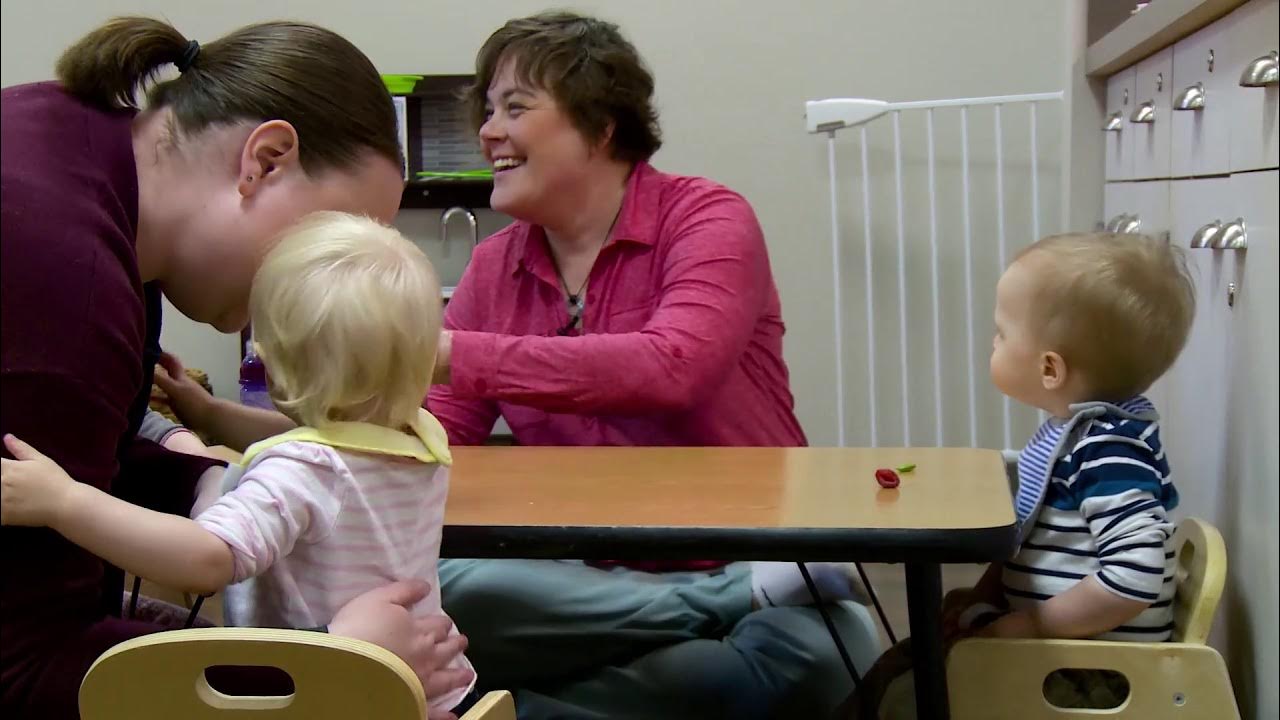Effective communication with families
Summary
TLDREffective communication between educators and families is essential for building strong partnerships that support children's mental health and development. By actively engaging with families and overcoming barriers like time constraints, jargon, and unrealistic expectations, educators can foster trust and openness. Reflecting on their own emotions, being empathetic, and approaching difficult conversations thoughtfully enables educators to address sensitive issues constructively. A strong relationship makes even challenging discussions more manageable, while involving other professionals when necessary ensures comprehensive support for the child's needs.
Takeaways
- 😀 Building strong relationships with families through consistent communication is crucial for children's mental health and well-being.
- 😀 Effective communication involves effort from both educators and families, with a focus on listening and understanding each other.
- 😀 Barriers such as time constraints, language differences, and professional jargon can hinder effective communication with families.
- 😀 A personalized approach to communication is more effective than relying on one-size-fits-all methods like emails or notice boards.
- 😀 A partnership based on mutual respect and regular communication helps address complex or challenging issues more effectively.
- 😀 Educators should practice emotional regulation and self-reflection to improve their communication, especially in emotionally charged situations.
- 😀 Difficult conversations, such as addressing behavioral concerns, require careful thought about how to approach the parent or family.
- 😀 Open and honest communication encourages parents to provide feedback and feel involved without fear of interference or judgment.
- 😀 Educators need to be aware of when it’s appropriate to involve other professionals in a conversation, especially when the situation exceeds their expertise.
- 😀 Regular, reflective practice in communication helps educators develop the skills needed to handle complex or difficult conversations with families.
Q & A
Why is establishing a strong partnership with families important in education?
-A strong partnership with families helps build trust and open lines of communication, which are essential for addressing any challenges or concerns regarding a child’s well-being. This relationship is a protective factor for children’s mental health and supports their overall development.
What role does communication play in effective family engagement?
-Communication is central to family engagement. It fosters understanding and mutual respect, allowing for collaborative decision-making. Regular communication, such as greetings and brief updates, builds rapport and creates an environment where families feel comfortable sharing concerns or providing feedback.
What are some common barriers to communication between educators and families?
-Barriers to communication include time constraints, one-size-fits-all approaches, language differences, and the use of jargon. These can make it difficult for families to fully understand or engage with the information being shared.
How can educators overcome the challenge of time constraints in communication?
-Educators can overcome time constraints by prioritizing communication, finding efficient ways to share important information, and creating opportunities for brief but meaningful interactions. Utilizing different methods, like short updates or scheduled meetings, can help ensure consistent communication.
What is the importance of adapting communication methods to individual families?
-Adapting communication methods is essential because not all families process information the same way. Personalized communication ensures that the message is received clearly and effectively, and it shows respect for the family’s unique circumstances and needs.
How can the use of professional jargon hinder communication with families?
-The use of professional jargon can create confusion or feelings of alienation for parents who may not be familiar with the terms. This can prevent them from fully understanding the issues at hand or engaging in the conversation, which undermines the goal of effective communication.
How does self-reflection contribute to better communication in difficult conversations?
-Self-reflection allows educators to manage their own emotions before engaging in sensitive discussions. By calming their thoughts and feelings, educators can be more attentive, present, and empathetic, which helps in fostering a positive and productive conversation.
What should educators consider when having difficult conversations with families?
-Educators should think about how to approach the conversation with empathy, clarity, and respect. It's important to plan for challenging topics, maintain a calm demeanor, and ensure that the tone and language used are sensitive to the family’s perspective.
Why might some parents find it hard to hear concerns about their child's behavior or well-being?
-Parents might find it hard to hear concerns because they may not have been aware of the issues, or it could challenge their understanding of their child’s development. Such conversations can be emotionally difficult, especially if parents are not prepared to hear that their child is facing challenges.
When should an educator involve other professionals in conversations with families?
-Educators should involve other professionals when they recognize that they lack the expertise to address a particular concern or when the situation requires additional support. This ensures that families receive the appropriate help and guidance, especially when the issues at hand are complex or outside the educator's scope.
Outlines

هذا القسم متوفر فقط للمشتركين. يرجى الترقية للوصول إلى هذه الميزة.
قم بالترقية الآنMindmap

هذا القسم متوفر فقط للمشتركين. يرجى الترقية للوصول إلى هذه الميزة.
قم بالترقية الآنKeywords

هذا القسم متوفر فقط للمشتركين. يرجى الترقية للوصول إلى هذه الميزة.
قم بالترقية الآنHighlights

هذا القسم متوفر فقط للمشتركين. يرجى الترقية للوصول إلى هذه الميزة.
قم بالترقية الآنTranscripts

هذا القسم متوفر فقط للمشتركين. يرجى الترقية للوصول إلى هذه الميزة.
قم بالترقية الآنتصفح المزيد من مقاطع الفيديو ذات الصلة

Rebuilding Family Engagement (Apples #195)

PWF Lesson 1 Part 3 - Family and Teacher Perspectives

Por que a parceria família-escola é tão importante?

Family Engagement with Schools: Strategies to Build Strong Partnerships

La participación de la familia en la escuela

Tugas Bidan Desa | Tugas & Tanggung Jawab Bidan di Komunitas
5.0 / 5 (0 votes)
